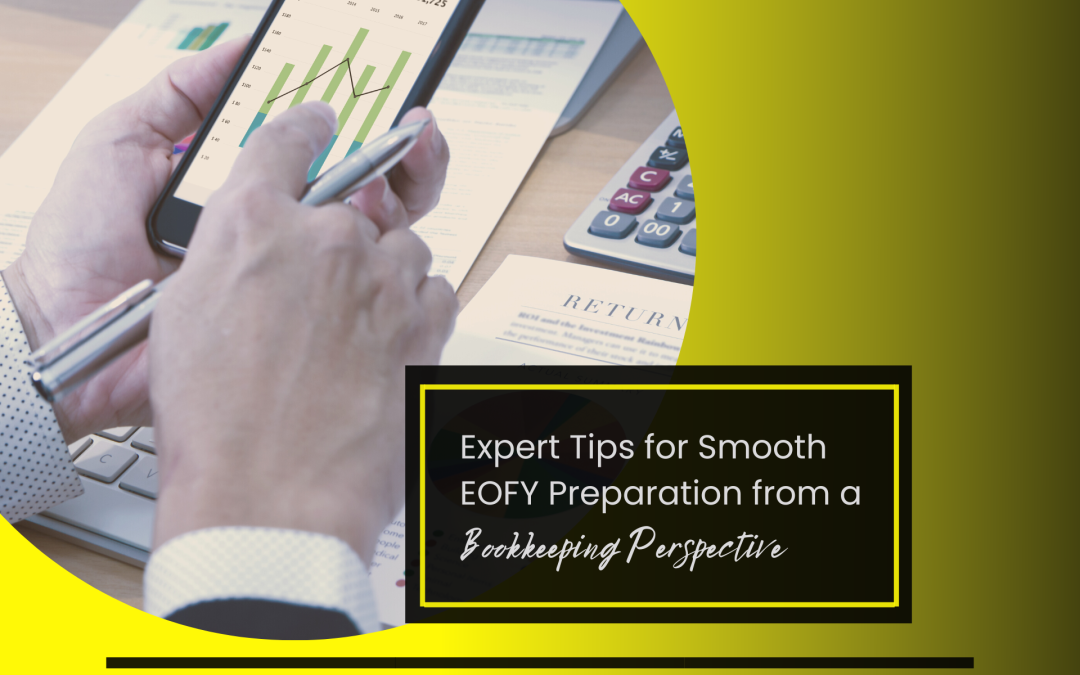The end of the financial year (EOFY) can be a stressful time for small business owners in Australia. However, with the right strategies and guidance from experienced bookkeepers, you can turn this task into an opportunity to regain control over your finances, streamline administrative processes, and boost your practice’s profitability. This blog post will provide nine valuable tips to help you prepare your business for the EOFY from a bookkeeping perspective.
1. Review Your Accounts and Bank Statements:
Begin meticulously reviewing your bank statements, ensuring each transaction is properly recorded. Verify account balances, outstanding invoices, and any unusual charges. It’s crucial to reconcile all expenses, including phone and electricity, before the EOFY.
2. Assess the Financial Health of Your Practice:
Evaluate the overall financial health of your practice, examining key metrics such as cash flow, profitability, and expenses. Gain a comprehensive understanding of your financial position to make informed decisions and identify areas for improvement.
3. Leverage Your Bookkeeping Software:
Make the most of your bookkeeping software to streamline your financial management. Ensure that your software is up to date with all relevant information, allowing you to generate accurate reports and gain clarity on your practice’s financial standing.
4. Enlist the Help of a Professional Bookkeeper:
Consider seeking assistance from a professional bookkeeper who specialises in working with small businesses. A skilled bookkeeper can ensure accurate record-keeping, provide valuable insights into your financial data, and help you navigate EOFY requirements.
5. Organise and File Your Tax Documents:
Gather and organise all necessary tax documents, including receipts, invoices, and other financial records. Ensure that everything is properly categorised and easily accessible for tax filing purposes.
6. Explore All Deduction Opportunities:
Collaborate with your bookkeeper to identify potential deductions specific to your business. Familiarise yourself with eligible expenses, such as professional development costs, business-related subscriptions, and equipment purchases, to maximise your tax savings.
7. Streamline Your Invoicing and Receivables:
Review your outstanding invoices and follow up on any overdue payments. Streamline your invoicing process to ensure timely and accurate billing. Consider implementing electronic invoicing systems to enhance efficiency and reduce administrative burdens.
8. Plan for the Future:
Use the EOFY to set financial goals and create a budget for the upcoming year. Evaluate your pricing structure, assess profitability by service or product, and plan for business growth or expansion.
9. Seek Professional Guidance:
Consult with your bookkeeper to gain insights into financial trends, potential cost-saving measures, and strategies to improve your practice’s financial performance. A bookkeeper can provide valuable advice and help you make informed decisions to drive your practice’s success.
By following these expert tips from a bookkeeping perspective, you can streamline your EOFY preparations and gain control over your business’s financial management. Partnering with a skilled bookkeeper specialising in small business, such as Katia Chehade, can provide the expertise and support needed to navigate the EOFY process with confidence. Contact Katia today to ensure a smooth and stress-free EOFY experience from a bookkeeping standpoint.

